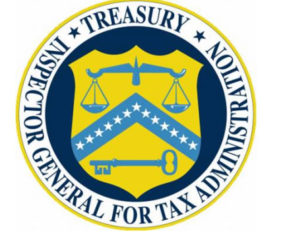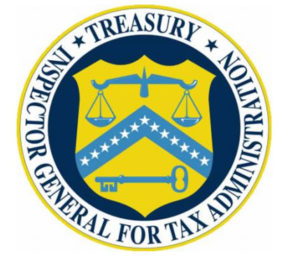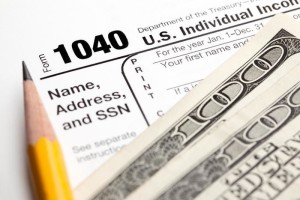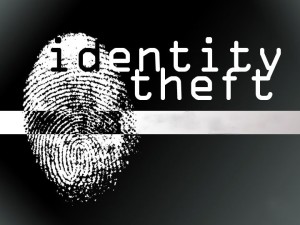TREASURY INSPECTOR GENERAL FOR TAX ADMINISTRATION
Thursday, November 28th, 2019 @ 4:45PM
Improvements Are Needed to Ensure That Consistent Suitability Checks Are Performed for Participation in Internal Revenue Service Programs
November 21, 2019
CFEG reports on a new Treasury Inspector General For Tax Administration (TIGTA) report which finds that the IRS needs to ensure that suitability checks are performed on applicants to IRS programs. These checks include criminal background checks to identify any criminal history; tax compliance checks to determine if the applicant has filed all of their business and personal returns and paid all taxes and has not been assessed a fraud penalty; citizenship checks to insure that the applicant is a United States citizen or a resident alien lawfully admitted for permanent residence in the United States; and professional licensing checks to verify that an applicant has an active professional status such as verifying if an accountant or attorney is in good standing in his or her state.
TIGTA reported that the Internal Revenue Service (IRS) partners with tax professionals and other entities that assist taxpayers in meeting their tax obligations. Before accepting these tax partners into the various IRS programs, the IRS conducts suitability checks to determine if the individuals applying for participation should be accepted to participate in the programs. The checks include criminal background checks to identify any criminal history; tax compliance checks to determine if the applicant has filed all business and personal returns and paid all taxes and has not been assessed a fraud penalty; citizenship checks to insure that the applicant is a United States citizen or a resident alien lawfully admitted for permanent residence in the United States; and professional licensing checks to verify that the applicant has an active professional status such as verifying if an accountant or attorney is in good standing in his or her state.
https://www.treasury.gov/tigta/auditreports/2020reports/202040005fr.pdf
The IRS conducts suitability checks for applicants in the E-file Provider Program, Acceptance Agent Program and the Enrolled Practitioner Program. The E-file Provider Program essentially allows professionals to file their clients’ tax returns with the IRS electronically. The Acceptance Agent Program authorizes individuals to assist resident and nonresident aliens and other foreign persons to obtains Tax Identification Numbers from the IRS. The Enrolled Practitioner Program allows an individual to represent taxpayers before the IRS as an Enrolled Agent. These individuals must pass a comprehensive test covering individual and business tax returns or gained experience as a former IRS employee. Enrolled Agents such as attorneys and certified public accountants are unrestricted as to the taxpayers they can represent, types of tax matters they can handle and IRS offices in which they can represent clients. https://www.treasury.gov/tigta/auditreports/2020reports/202040005fr.pdf
TIGTA reviewed a statistically valid sample of 170 individuals accepted into the E-file Provider Program, Acceptance Agent Program and the Enrolled Practitioner Program. TIGTA found that none of the individuals engaged in a criminal activity that warranted removal, however, five were not in tax compliance. https://www.treasury.gov/tigta/auditreports/2020reports/202040005fr.pdf
TIGTA further found that a tax compliance check was performed on all new applicants, but other suitability checks, such as, a criminal background check to determine if the individual has a criminal background, is incarcerated, is a U.S. citizen, is deceased, is on the Specially Designated Nationals list or has an identity theft marker on his or her tax account, vary depending on the program. TIGTA concluded that each program poses similar, and significant risks to tax administration and the same comprehensive suitability checks should be conducted on individuals in each program rather than varying checks. https://www.treasury.gov/tigta/auditreports/2020reports/202040005fr.pdf
TIGTA found there was inconsistency among the various programs as it relates to continual tax compliance checks performed once applicants are approved for participation. In other words, the IRS has not been doing continual tax compliance checks. However, in the E-file Provider Program the IRS uses an automated program to check for tax compliance on a daily basis. TIGTA reported that security over taxpayer data and protecting taxpayers’ rights are two of the IRS’s top management and performance challenges and therefore, the IRS should perform consistent initial and continuous suitability checks on program applicants and participants to make sure they are suitable partners for IRS programs. TIGTA also concluded that the inconsistencies they found in their report could result in the IRS determining that an applicant is unsuitable for one program while permitting participation in another which would increase the risks to taxpayers. https://www.treasury.gov/tigta/auditreports/2020reports/202040005fr.pdf
Based on its findings TIGTA recommended that the Provider, Acceptance Agent, and Enrolled Agent Programs should have a criminal background check, continuous tax compliance checks, and checks to determine if the applicant is deceased, incarcerated, or on the Specially Designated Nationals list. The IRS agreed to the recommendation. https://www.treasury.gov/tigta/auditreports/2020reports/202040005fr.pdf
TIGTA further recommended that the IRS perform criminal background checks on individuals applying to participate in the e-File Provider, Acceptance Agent, and Enrolled Agent Programs. The IRS agreed with the recommendation. https://www.treasury.gov/tigta/auditreports/2020reports/202040005fr.pdf
TIGTA found that the adjudication processes are inconsistent for Applicants with a criminal history. TIGTA recommended that the IRS assess the risk of the e-File Provider Program’s use of matrices to adjudicate an individual’s criminal history that are inconsistent with the matrices used by the Acceptance Agent and Enrolled Agent Programs. The IRS agreed with this recommendation. https://www.treasury.gov/tigta/auditreports/2020reports/202040005fr.pdf
TIGTA recommended that the IRS review the applications of six persons (two that were incorrectly denied participation and four who were accepted in error) to determine if they should be removed or allowed to participate. The IRS agreed. https://www.treasury.gov/tigta/auditreports/2020reports/202040005fr.pdf
TIGTA recommended that IRS technicians request a court disposition document in all initial denial letters if the disposition is not included in the applicant’s criminal history. The IRS agreed with the recommendation. TIGTA also recommended that that the IRS determine if revisions are needed relative to the time frame for applicants to respond to initial denial letters when the applicant is required to provide certified court disposition documents. The IRS agreed. https://www.treasury.gov/tigta/auditreports/2020reports/202040005fr.pdf
TIGTA found that the IRS has procedures which do not ensure that potential tax compliance issues identified for some individuals are timely addressed. TIGTA recommended that the IRS should ensure that the report identifying e-File Providers in a recheck status is timely generated on a recurring basis and that time frames are established for tax examining technicians to timely review providers in a recheck status. The IRS agreed with this recommendation. https://www.treasury.gov/tigta/auditreports/2020reports/202040005fr.pdf
TIGTA found that sufficient actions have not been taken to address the fraudulent submission of fingerprint cards by some applicants. TIGTA recommended that the IRS work with the FBI to identify additional individuals who submitted fingerprint cards after September 13, 2016, that match the fingerprints of another individual. The IRS agreed with this recommendation. https://www.treasury.gov/tigta/auditreports/2020reports/202040005fr.pdf
TIGTA recommended that the IRS develop processes and procedures to ensure that continuous criminal background checks are conducted on all program participants as part of the FBI’s Records of Arrests and Prosecutions (RAP) Back Program and include steps to evaluate continued participation in IRS programs for individuals identified with a criminal history. The IRS agreed with this recommendation. https://www.treasury.gov/tigta/auditreports/2020reports/202040005fr.pdf
TIGTA also recommended that the IRS address the continued participation of nine applicants who were identified by the FBI as once again submitting a fingerprint card with fingerprints associated with another individual and deactivate the applicants’ Electronic Filing Identification Numbers as appropriate. The IRS agreed with this recommendation. https://www.treasury.gov/tigta/auditreports/2020reports/202040005fr.pdf
In sum, security over taxpayer data and protecting taxpayers’ rights are two of the IRS’s top management and performance challenges. As such, TIGTA’s report here makes clear that the IRS should perform consistent initial and continuous suitability checks on program applicants and participants to make sure they are suitable partners for IRS programs because of security for taxpayer data and taxpayer’s rights. And, that improvements are needed based upon the deficiencies found by TIGTA. It is important for the IRS to determine those individuals who are unsuitable for participation in IRS due to their criminal history, whether they have filed all business and personal tax returns and paid all taxes, whether they are a U.S. citizen or lawful resident alien with permanent residence in the U.S., and whether they have an active professional status in his or her state.
Posted by cfegov
Categories: 2019 CRIMINAL CONVICTIONS OF IRS EMPLOYEES, IRS Employees Engage In Tax Refund Identity Fraud












